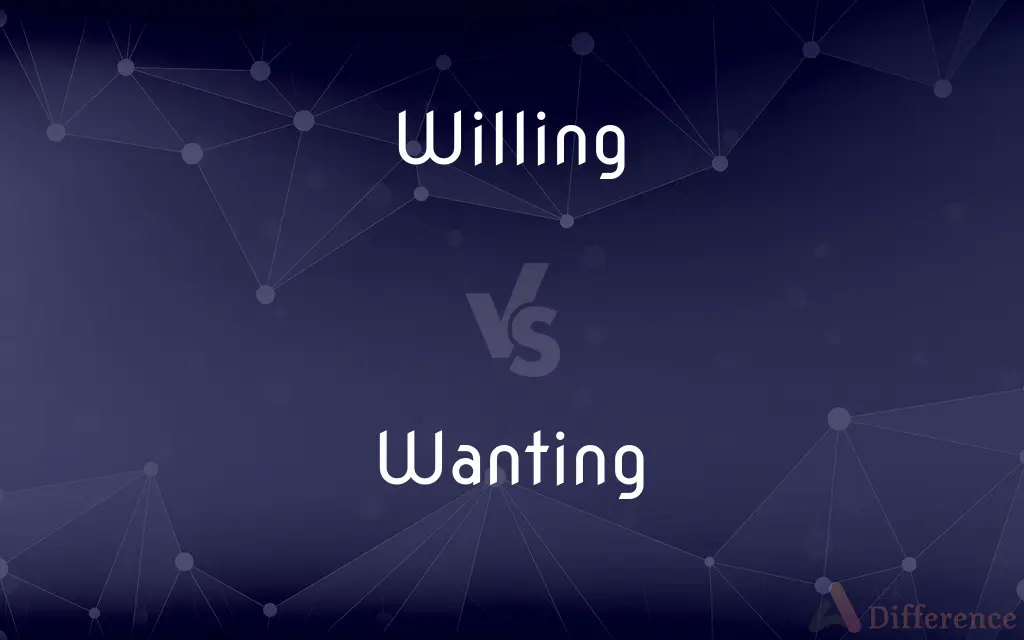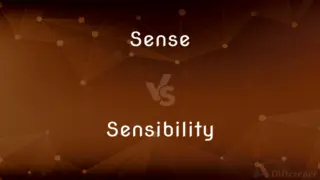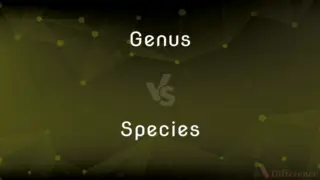Willing vs. Wanting — What's the Difference?
By Tayyaba Rehman — Updated on November 2, 2023
Willing implies readiness or consent; wanting means desiring or lacking something.

Difference Between Willing and Wanting
Table of Contents
ADVERTISEMENT
Key Differences
Willingness refers to a state of readiness or consent. It indicates a person's preparedness to do something or agree to something. Wanting, on the other hand, is about desire. It represents a feeling of longing for something or someone. While willing is about the readiness to act, wanting is about the yearning to have.
Willing often involves a sense of voluntary action. It’s about choosing to do something without coercion. In contrast, wanting can be involuntary, arising from deep desires or needs. Wanting is the emotion that pulls one towards something, whereas willing is the decision to move towards it.
In terms of commitment, willing implies a level of engagement and responsibility. It suggests that one is prepared to follow through. Wanting, however, doesn’t necessarily imply commitment. One can want many things without the willingness to work towards them.
Willing can exist without wanting. One can be willing to do something out of duty or obligation without genuinely desiring it. Conversely, wanting doesn’t always lead to willingness. People often want things they are not prepared or willing to pursue.
Comparison Chart
Nature
Readiness or consent
Desire or longing
ADVERTISEMENT
Voluntariness
Often voluntary
Can be involuntary
Relation to Action
Indicates preparedness to act
Indicates yearning to have
Commitment
Implies engagement and responsibility
Doesn’t necessarily imply commitment
Dependence
Can exist without wanting
Doesn’t always lead to willingness
Compare with Definitions
Willing
Ready to do something
She was willing to help with the project.
Wanting
Lacking or deficient in some aspect
The report was wanting in detail.
Willing
Given freely and voluntarily
His willing participation made the event successful.
Wanting
Wishing for something
He was wanting to visit Paris.
Willing
Inclined or favorably disposed
He was willing to consider new ideas.
Wanting
Showing a lack or absence
The cake was wanting in flavor.
Willing
Prepared to do something without reluctance
He was willing to travel for the job.
Wanting
Absent; lacking
What is wanting is a real understanding of the issue.
Willing
Disposed or inclined; prepared
I am willing to overlook your mistakes.
Wanting
Not measuring up to standards or expectations
Found his performance wanting.
Willing
Acting or ready to act gladly; eagerly compliant
A willing worker.
Wanting
Without; missing
A shirt wanting a button.
Willing
Done, given, or accepted voluntarily or ungrudgingly.
Wanting
Minus; less
An hour wanting 15 minutes.
Willing
Ready to do something that is not (can't be expected as) a matter of course.
If my boyfriend isn't willing to change his drinking habits, I will split up with him.
Wanting
That wants or desires.
Willing
The execution of a will.
Wanting
Absent or lacking.
Willing
Present participle of will
Wanting
Deficient.
Willing
Free to do or to grant; having the mind inclined; not opposed in mind; not choosing to refuse; disposed; not averse; desirous; consenting; complying; ready.
Felix, willing to show the Jews a pleasure, left Paul bound.
With wearied wings and willing feet.
[Fruit] shaken in August from the willing boughs.
Wanting
Without, except, but.
Willing
Received of choice, or without reluctance; submitted to voluntarily; chosen; desired.
[They] are held, with his melodious harmony,In willing chains and sweet captivity.
Wanting
Less, short of, minus.
Willing
Spontaneous; self-moved.
No spouts of blood run willing from a tree.
Wanting
Present participle of want
Willing
The act of making a choice;
Followed my father of my own volition
Wanting
The state of wanting something; desire.
Willing
Disposed or inclined toward;
A willing participant
Willing helpers
Wanting
Absent; lacking; missing; also, deficient; destitute; needy; as, one of the twelve is wanting; I shall not be wanting in exertion.
Willing
Not brought about by coercion or force;
The confession was uncoerced
Wanting
Not existing;
Innovation has been sadly lacking
Character development is missing from the book
Willing
Disposed or willing to comply;
Someone amenable to persuasion
The spirit indeed is willing but the flesh is weak
Wanting
Inadequate in amount or degree;
A deficient education
Deficient in common sense
Lacking in stamina
Tested and found wanting
Willing
Consenting or agreeable
She was willing to change the schedule.
Wanting
Desiring something
She was wanting a new car.
Wanting
In need of something
The shelter was wanting in volunteers.
Common Curiosities
Is "willing" always voluntary?
Generally, it implies a voluntary choice.
Does "willing" suggest commitment?
Yes, it implies a level of engagement and responsibility.
What does "willing" imply?
It implies readiness or consent to do something.
Can "wanting" mean lacking?
Yes, it can mean lacking or deficient in something.
Is "wanting" the same as needing?
Not exactly. Wanting is more about desire, while needing is about necessity.
Can someone be willing without wanting?
Yes, one can agree to do something without desiring it.
Can "wanting" indicate a deficiency?
Yes, it can mean that something is lacking or needed.
Does "wanting" imply urgency?
Not necessarily, it mainly implies desire.
Can "wanting" be involuntary?
Yes, it can arise from deep desires or needs.
Does "willing" involve choice?
Yes, it often involves making a voluntary choice.
Is "willing" related to action?
Yes, it indicates a preparedness to act.
Can "willing" exist in the absence of desire?
Yes, one can be willing out of duty or obligation.
Does "wanting" always lead to action?
No, wanting doesn’t always result in willingness to act.
Can "wanting" be a feeling?
Yes, it can be a feeling of longing or desire.
Can "willing" be related to readiness?
Yes, it often implies being ready or prepared for something.
Share Your Discovery

Previous Comparison
Sense vs. Sensibility
Next Comparison
Genus vs. SpeciesAuthor Spotlight
Written by
Tayyaba RehmanTayyaba Rehman is a distinguished writer, currently serving as a primary contributor to askdifference.com. As a researcher in semantics and etymology, Tayyaba's passion for the complexity of languages and their distinctions has found a perfect home on the platform. Tayyaba delves into the intricacies of language, distinguishing between commonly confused words and phrases, thereby providing clarity for readers worldwide.














































